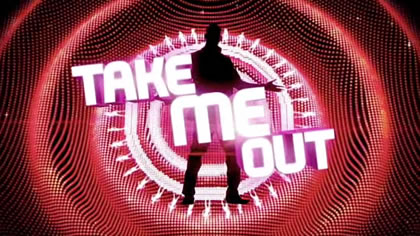
This isn’t me. I rarely wear a flat cap.
In September I got my first tattoo. A small and simple one. “They’re addictive!” I was warned. I doubted it.
But then this week I got my second tattoo. A bigger and more detailed one. I warn you, they’re addictive.
What do you need to know to make the transition from the school run to the tattoo parlour pain-free (relatively)? Is it okay to wear a top from M&S? Do you need to pretend you’ve heard of Stormsky and Jason Dorito? ARE YOU JUST TOO SQUARE?
Start small
If you’re not sure if you can handle the pain, then start small. There are different entry level points and you don’t need to go the full shebang with a complete tattoo bodysuit. This is a luxury that you don’t have with childbirth, where there is only one entry point and two exit points. If you have squeezed out a baby then in all likelihood you’ll be able to manage the discomfort of a tattoo with ease. (If you’re a man who’s had kidney stones and a doctor has told you some b*llocks about that being more painful than childbirth, then there’s your benchmark. Cling to it.)
You don’t need to get a portrait of your children
Let’s rephrase that: Don’t get a portrait of your children. Or indeed their birthdates, initials or any recreation of a stick man drawing they’ve produced. If you’ve got to middle-age and have decided to get a tattoo, then it should only be for you. Get something you like (that may even rule out your kids), something that reminds you that you are more than simply a bum wiper and a nose blower.
Not everyone will like it – get used to it
Rolling up your sleeve and seeing the look on the face of someone who hates tattoos takes some getting used to. People tend not to hide their dislike. (Remember to return the favour next time they show you a photo of their children.) Yes, you will feel judged, but as Ms Swift once wisely said: the haters gonna hate hate hate hate hate. Remember why you got a tattoo – I’m 99.9% sure it wasn’t for other people. My first one was upside down as it was only important for me to see it the right way up. And, hell, you’ve made it this far – it’s time to stop worrying about what other people think.
Show how sensible you are
Waiting until your 40s to get a tattoo is an excellent way to teach your children not to rush into things they might regret. My two now understand that even though Mummy has always wanted a tattoo, she thought for an awfully long time about it. Decades. It’s only now that Mummy is really sure about what she wants, so, no, we won’t be letting you get a tattoo when you’re 18.
Telling your mother
If you anticipate any issues with introducing your mother to your tattoo, don’t tell your child about it and suffix the conversation with “but don’t tell Nanna”. In fact, the sure-fire way to let the whole world know about your inky addition is to tell your children. If you’ve had your tattoo somewhere intimate, be prepared to reassure strangers that, contrary to what your child has said, you’re not going to get it out to show them
Yes, it is a mid-life crisis …
… and, no, don’t be ashamed. It’s not like you’ve bought a sports car and dumped your family. There are far worse things you can do. There are some things you’ll regret because you know you’re too old to achieve them now – winning an Olympic medal – or that responsibilities and mortgages are stopping you from doing, so make the most of the things you can do. Visit places you’ve always wanted to visit, go and see Jedward live if you so wish, get a tattoo (even if it’s just one little one to say “I did it!” and tick off the bucket list).
Tattoos don’t automatically make you cool
If you’re a square (like me), you will still be square – just a square with a tattoo. The tattoo might be a really cool one but, just remember, a Robin Reliant with a spoiler doesn’t suddenly become a Porsche. Donald Trump with an awesome tattoo would still be Donald Trump. Fact.
Don’t expect miracles, but do enjoy the guilty joy of rebellion as you settle down with a sherry to watch Pointless and sew on Brownie badges. You and your tattoo kick ass.














